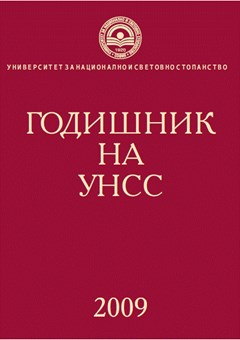Влияние на световната икономическа криза върху дейността на фондовете за допълнително пенсионно осигуряване в България
Authors: Жеко Милев, Богомил Манов
The Influence of the World Economic Crisis on the Pension Funds in Bulgaria
Bogomil Manov, Jheko Milev
Abstract
Студията има за цел да представи начинът, по който световната финансова криза засегна институциите за допълнително пенсионно осигуряване в България. Българската икономика е малка и отворена. Тя не можеше да остане изолирана от кризисните процеси, протичащи в Европа и света. Зависимостта й от обема на чуждестранните инвестиции и европейския пазар на стоки и услуги предопредели изпадането й в рецесия. Острият спад на цените на финансови активи, покачващите се лихвени проценти и затрудненото финансово положение на редица фирми оказаха своя негативен ефект върху дружествата за ДПО. Дългосрочният хоризонт на инвестициите на пенсионните фондове от втория стълб дава възможност на пенсионните компании да изчакат и в следващите години да възстановят загубените средства. Доброволните пенсионни фондове обаче загубиха средства, които трудно ще могат да възстановят на лицата, чието пенсиониране наближава. Мерките по управление на риска ще играят все по-важна роля при институциите за допълнително пенсионно осигуряване. Внимателното подбиране на финансови инструменти и доброто диверсифициране на портфейла ще бъдат от съществено значение през следващите години.
Abstract
This paper aims to show how the World financial crisis affected the institutions for additional pension insurance in Bulgaria. The Bulgarian economy is small and open so that it was not possible to stay isolated by the crisis which escalated in Europe and the whole World. The recession of the Bulgarian economy was predetermined by its dependency from the foreign investments and the European export market. The sharp decline of the financial asset prices, the rise of the interest rates and the financial difficulties of many enterprises had a negative impact on the Bulgarian pension funds. The long – term investment horizon of the pension funds from the second pillar will give them an opportunity to recover their losses. The voluntary pension funds from the third pillar, however, realized losses which will be hard to recoup in the next few years when some people are going to retire. Risk management measures will play more and more important role for the institutions for additional pension insurance in Bulgaria. Careful financial instrument selection and diversification will be crucial in the following years.

